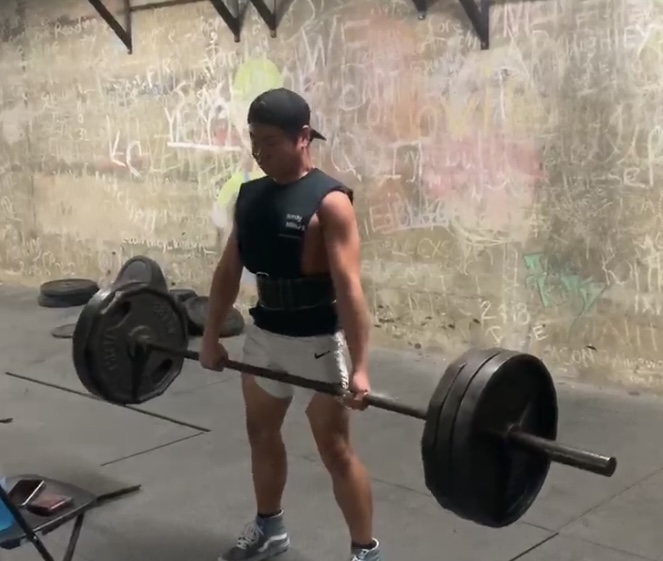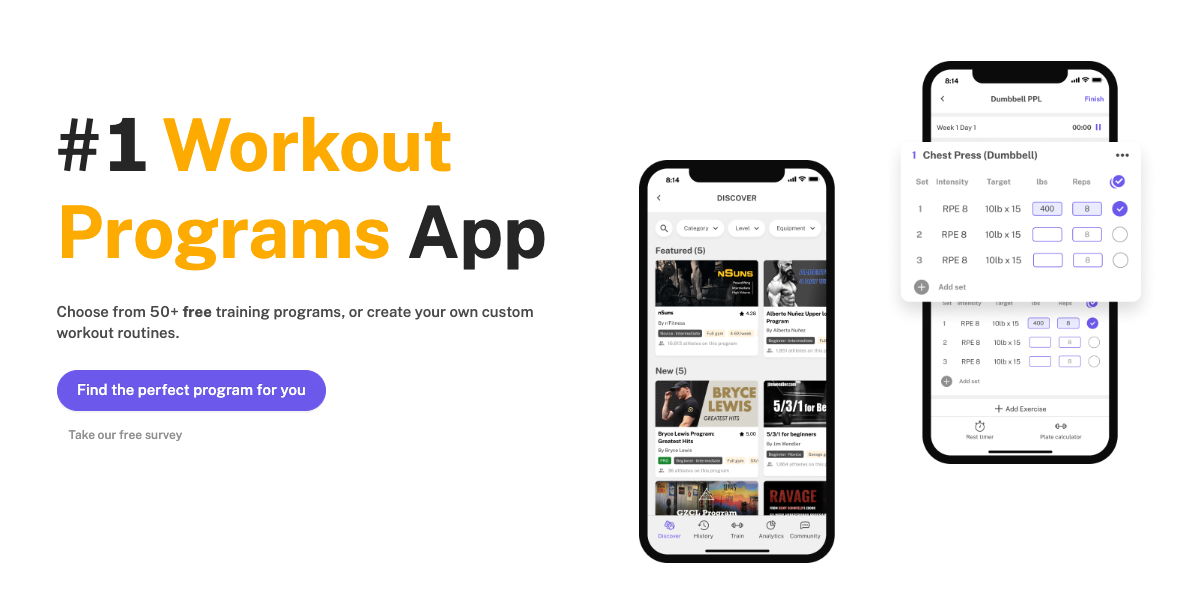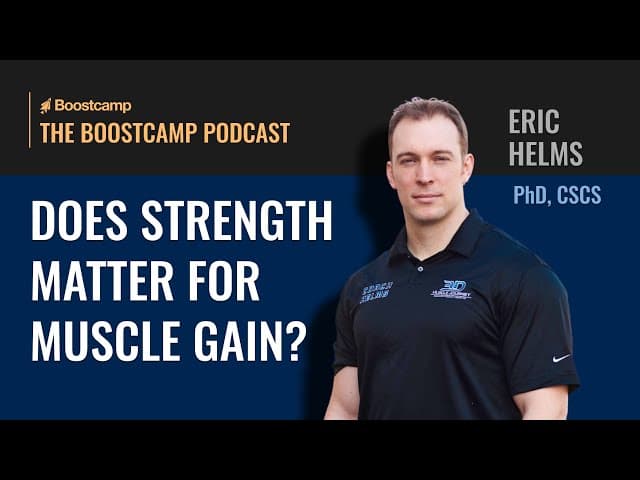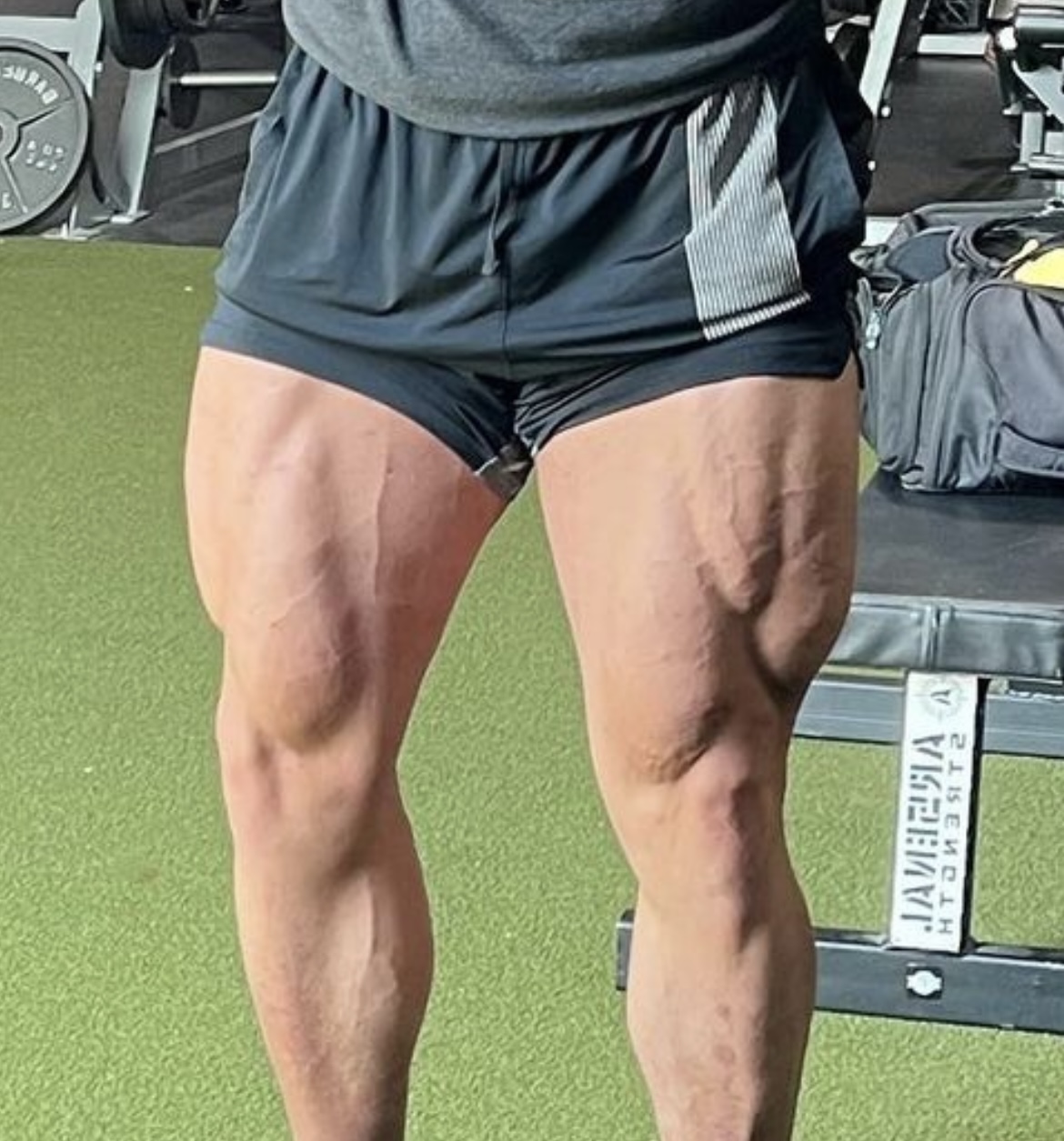Does Strength Matter for Muscle Gain?
Written by The Boostcamp Editors
The age old question gets answered
When you first join a gym or start a new workout program, many times you will be aiming for a specific goal; some people want to be powerlifters, some want to be bodybuilders, and some are looking for something else. That being said, there are plenty of training programs out there, and many of them aim to help you gain size and/or strength. The common ideology is that putting on more muscle mass will make you stronger, or that getting stronger will help you build larger muscles. So, which is it? Does strength matter for muscle gain? Does hitting a 405 lb bench press mean that you have a massive chest?
Boostcamp’s own Michael Liu sat down with renowned coach and competitor, Dr. Eric Helms to discuss if strength actually matters when it comes to muscle mass. So throw on your lifting belt and let’s dive in.
Dr. Helms’ Takeaways on Strength vs. Muscle Mass

One exercise that Dr. Helms used in our interview to discuss if strength equates to muscle mass, was the squat. The barbell squat has been a staple in almost every fitness routine there is for a long time, and for good reason, as the squat is a great builder of size and strength. However, Helms stated that “the person with the biggest squat does not have the biggest legs”. Then he goes on to state that on the flip side, he states that someone who uses squats every leg day but does not progress in their weight, more than likely has not progressed in their muscle gain, whereas someone who has progressed in their weights has grown in size.
Dr. Helms goes on to say that there are studies done where they look at strength athletes and then take someone's lean body mass, muscle thickness, muscle fiber cross-sectional area, and it has a very strong relationship with their total, meaning how much they can lift on certain lifts. He states that it is harder to see on a short term scale, and those relationships get weaker over time because so many things can affect strength, including BMI.
He does state that when they bring athletes into the labs to do testing and look at the cross sectional relationship, you can discriminate between who has more experience and who is stronger based on who has more muscle volume, including biceps. The exercise he uses as an example is a leg extension, so someone with more quadricep volume and biceps volume would likely have more experience, strength, activation, and training program than someone with skinnier legs.
Dr. Helms goes on to explain that this all circles back to progressive overload. Take someone who trains strictly for a pump as an example. If they are not tracking their weights and then progressing the working loads but they are rather training to just get that blood into the muscle, at a certain point that will catch up with the lifter. While there is nothing wrong with being happy by maintaining the muscle that you have, if you are looking to gain size and strength then you have to utilize progressive overload.
Furthering the discussion of if strength equates to muscle mass, Dr. Helms goes on to describe his time working with competitive bodybuilders. As a natural lifter, it could very well take someone 5 years to gain just 5 pounds of muscle mass on their stage weight. He describes that while they are not necessarily aiming to increase their one rep max or peak for a powerlifting meet, in order to put that muscle mass on there has to be some sort of effort within their training, including increasing loads in relation to body weight growth and physical activity. This can be done through things like taking sets to muscular failure, or training close to it to increase muscle force and stimulate the nervous system.
Dr. Helms also states that if someone is trying to put on muscle mass but working with the same loads each week, then every other week try to add a rep or two, including triceps extensions. He states that even if they believe they are training hard, if they do not incorporate progressive overload into their training in some way, then they will not make progress. Even if your 12 rep max becomes your 20 rep max, that is still technically progressive overload without focusing directly on strength and repetitions, and while it may not be optimal it is something that can be done.
So, Does Strength Mean More Muscle Mass?
The short answer is no, strength does not mean you have more muscle mass. There are so many factors that go into your overall strength rather than just the amount of muscle that is packed onto your frame. For example, your recovery protocol, ligaments, and joints play a large role in how much you can lift.
This is why you see many powerlifters or weightlifters that may not even look like they really work out, but can squat 500 or more pounds (lbs), deadlift 700 pounds (lbs), and bench 400 pounds (lbs). There is so much more that contributes to your strength than just the amount of muscle mass you have.
Then Does Muscle Mass Mean More Strength?
This is more of an on the fence area. Muscle size can influence strength, but someone with the biggest, most muscle legs may not have the strongest squat. Again, a lot of powerlifters or weightlifters may not carry large amounts of muscle mass on them, but they are far stronger than let’s say a Mr. Olympia competitor with smaller muscles, as they generate the most force, particularly in their quads.
Hypertrophy vs. Strength Training: Which is Better?
Now the reason you can sometimes see people with less muscle lifting more than people with more muscle is because of the differences in training styles. Some people, such as bodybuilders, will focus solely on hypertrophic training for bodybuilding. Their volume will be higher and their rep ranges will often be in the 8-12 range, with moderate weight and high loads, with a big emphasis on the mind-muscle connection and muscle cell physiology.
Strength training is utilized more by powerlifters and weightlifters, and is more focused on heavier weight with less volume. Strength training is often more focused around compound lifts as well, such as the squat, bench, and deadlift.
Progressive Overload for Size and Strength
Regardless of the training styles, the only way to progress is through progressive overload. Dr. Helms said it, and we are agreeing with him. When it comes to wanting to go forward in your fitness journey, whether you are looking to put on more size or gain strength, the only way to do it is by utilizing things such as heavier weights or more volume.
Boostcamp for the Best Workout Programs
If you are looking for workout programs to really forward your progress, Boostcamp is the place to find a program for just about any style of training you can imagine. When you are looking for a program that will really push you to the limit and help you continue progressing in a linear fashion, look no further than the Boostcamp App.
There are plenty of free programs, over fifty to be exact. When it comes to following a new workout program and seeing how you are progressing with it, you would want to find a platform that caters to your needs and guides you in the right direction. Boostcamp can help with that, and it can even help you to measure your progress, track your workouts, and continue with linear progression. You also do not have to choose from prewritten programs, you can create and customize your own!
Strength and Muscle Mass Wrap Up

Overall, the age-old question of if being stronger means more muscle mass, or if more muscle mass means more strength, is a tricky one. While strength, or the ability of a muscle, or group of muscles, to produce force against an external resistance, does not necessarily mean more muscle mass, nor does muscle mass directly mean more strength, they certainly influence each other. The most important thing to keep in mind when looking to go forward is progressive overload, especially for women and older adults. Perhaps using a good, custom workout program that considers metabolism is the key to that!
Will you be training anything differently?
Be sure to follow Boostcamp on Instagram and subscribe on YouTube!



